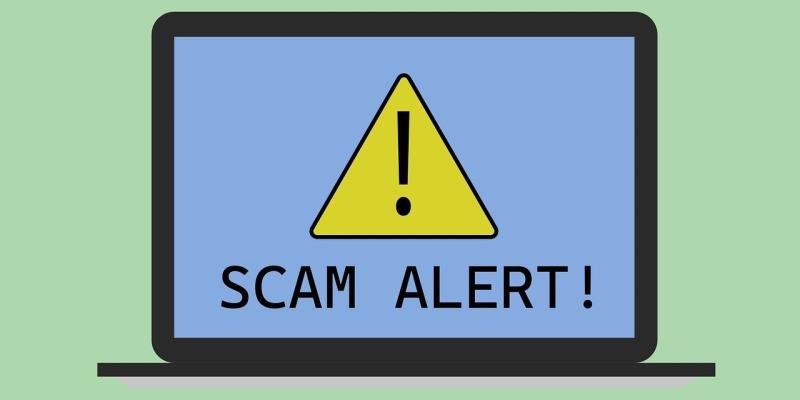Hiring a marketing agency can be one of the smartest moves for your business. When done right, it can bring you incredible ROI, elevate your brand, and help you dominate your industry. A good agency becomes a true partner, aligning with your goals and delivering measurable results.
But not every agency plays by the rules. Many businesses fall prey to agencies that promise the world but lack the expertise or ethics to back it up. These money-grabbers often leave you with little more than wasted budgets, unmet goals, and a sense of frustration.
Navigating the world of marketing agencies can feel overwhelming, especially when your business growth is on the line. The good news? Spotting the red flags and knowing what to look for can save you from falling into these traps. Let’s explore the common scams in the marketing agency world and how to protect yourself, so you can find a partner that truly delivers on its promises.

1. The Overpromising Trap
Red Flag: Unrealistic guarantees, like “We’ll get you to #1 on Google in 30 days.”
Why It’s a Scam:
No reputable agency can guarantee specific results within a short timeframe, especially in areas like SEO, where results depend on algorithms and market competition. Overpromising agencies often rely on black-hat techniques that can harm your brand long-term.
How to Avoid:
- Ask for case studies and client references.
- Ensure their strategies align with industry best practices.
2. Hidden Fees and Contracts
Red Flag: Vague contracts with unclear deliverables and extra fees buried in the fine print.
Why It’s a Scam:
Some agencies lock clients into long-term contracts with hefty cancellation fees, or they charge for “extras” that should have been included in the original agreement.
How to Avoid:
- Review contracts carefully with a legal professional if needed.
- Insist on a clear breakdown of costs upfront.
3. Fake Reporting and Vanity Metrics
Red Flag: Reports filled with impressive-sounding metrics like “reach” or “impressions” that don’t translate into business growth.
Why It’s a Scam:
Vanity metrics can look good on paper but don’t necessarily impact revenue or ROI. Dishonest agencies may inflate these numbers while avoiding critical performance indicators like sales or lead conversions.
How to Avoid:
- Request detailed reports that include ROI-focused metrics like cost per lead (CPL) or customer lifetime value (CLV).
- Monitor performance closely and question vague or overly positive results.
4. Black-Hat SEO Practices
Red Flag: Promises of instant SEO success or practices like keyword stuffing and buying backlinks.
Why It’s a Scam:
Black-hat SEO methods may offer a short-term boost but can result in search engine penalties, damaging your online presence.
How to Avoid:
- Ask for an SEO audit and clear explanation of their strategies.
- Ensure they follow Google’s Webmaster Guidelines.
5. Cookie-Cutter Campaigns
Red Flag: One-size-fits-all strategies with little to no customization for your business or industry.
Why It’s a Scam:
Every business has unique goals, audiences, and challenges. Agencies that rely on generic templates are unlikely to drive meaningful results for your brand.
How to Avoid:
- Look for agencies with experience in your specific industry.
- Demand a customized marketing plan.
6. Non-Transparent Processes
Red Flag: Agencies that keep you in the dark about their methods, progress, or who is actually working on your campaigns.
Why It’s a Scam:
Some agencies outsource work to cheap third-party providers without informing clients, leading to inconsistent quality and poor results.
How to Avoid:
- Ensure the agency provides regular updates and detailed reports.
- Ask to meet the actual team working on your account.
7. Social Media Growth Scams
Red Flag: Agencies offering to grow your followers by thousands overnight.
Why It’s a Scam:
These services often rely on fake accounts or bots, which can harm your credibility and engagement rates.
How to Avoid:
- Focus on organic growth strategies, like engaging content and targeted ads.
- Be wary of any agency promising instant results.
8. The "Cheap and Fast" Trap
Red Flag: Agencies offering unrealistically low prices and quick results.
Why It’s a Scam:
Quality marketing requires time, effort, and expertise. Agencies that promise otherwise may cut corners, harming your brand’s long-term performance.
How to Avoid:
- Research average costs for marketing services in your region.
- Remember, if it sounds too good to be true, it probably is.
Protect Yourself: Steps to Take Before Hiring
1. Do Your Research:
Look for agencies with a proven track record, positive client reviews, and industry recognition.
2. Check Credentials:
Verify the agency’s certifications, such as Google Partner or HubSpot certification, to ensure they meet industry standards.
3. Demand Transparency:
Ensure the agency provides a clear scope of work, detailed pricing, and regular updates on campaign progress.
4. Start Small:
Test the waters with a smaller project or short-term contract before committing to a long-term partnership.
5. Ask Tough Questions:
- How do you measure success?
- Who will be working on my account?
- Can you provide case studies or references?
Final Thoughts
Not all marketing agencies are out to scam you, but the industry is rife with bad actors. By knowing the red flags and taking proactive measures, you can find an agency that aligns with your goals and values.
A trustworthy agency doesn’t just sell services—it builds partnerships, prioritizing your business’s growth and success.
Have you had an experience with a shady marketing agency? Share your story in the comments below to help others stay informed!

